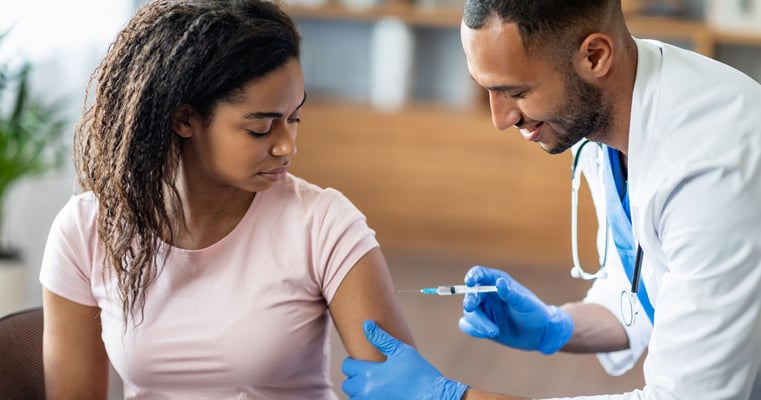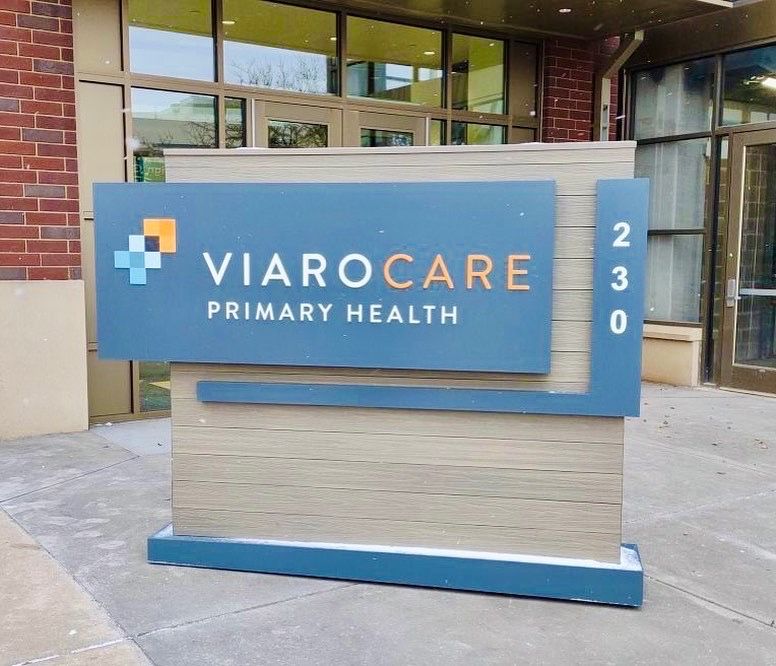Adult Vaccinations: Clearing Up the Confusion
Just like kids, adults need vaccines. It can be confusing, and the subject is hot off the press. Particularly with outbreaks of Respiratory Syncytial Virus (RSV), Influenza A and B, and COVID-19 still rearing their head, there are more questions. Are you traveling, have a child in daycare, a senior adult, or are you a caregiver? All may play a role in your decision-making.
These viruses thrive at gatherings and parties and typically show up around the holidays. They like to hang around while you are stuck indoors sharing their unwanted company. Unfortunately, the flu is an annual visitor, RSV is now hospitalizing our seniors and is prevalent in daycares, and COVID keeps finding ways to reinvent itself with much publicized and highly contagious variants.
What can you do besides go back into quarantine? Get vaccinated. Vaccines are a safe and effective way to protect you and those you care about. Here’s a quick review of adult vaccination recommendations.
Pregnant Females, Partners, and Grandparents. If you are pregnant, discuss getting the RSV booster between 32 and 36 weeks with your obstetrician or midwife. The booster protects your newborn from RSV. Both parents should consider a Tdap booster for protection against pertussis (whooping cough). Grandparents are also strongly encouraged to get a Tdap, COVID, and influenza vaccine, particularly if helping with childcare.
Parents of Children in Daycare and Schools. Sick adults miss an average of a week of work, and even more if they care for sick kids. Yearly influenza vaccine and COVID boosters are widely available to help protect you.
Travelers. Before you leave, make sure your tetanus is up to date. If you plan to enjoy local food and beverages, Hepatitis A and B vaccines are recommended, particularly if you are traveling to Central and South America, Eastern, and Southern Europe, or Africa. Consult the Centers for Disease Control (CDC) travel website for country-specific travel recommendations Travelers' Health | CDC.
LGBTQ Community. Stay up to date on your COVID boosters and yearly influenza vaccine and discuss your immune status for Hepatitis A and B with your healthcare provider. Also, talk about preventing Mpox and the new recommendation for HPV vaccine up to age 45.
Healthy adults ages 19-45. Talk with your healthcare provider about the HPV vaccine series if you didn’t get it as an adolescent or young adult. Get your Tetanus booster every 10 years and stay current on your COVID booster and yearly influenza vaccine.
People over 50. You really don’t want Shingles. Get the two-dose vaccine series given six months apart.
60 and over. If you are at greater risk for serious illness from chronic heart and lung conditions, systemic illnesses, and a weakened immune system, talk with your healthcare provider about the RSV vaccine.
For those over 65. Get the pneumonia vaccine. It’s especially important if you have asthma, chronic obstructive pulmonary disease (COPD), diabetes, or other chronic health issues.
Many of these vaccines are available at ViaroCare. Consult the CDC adult immunization schedule for a complete list and more information. For questions or comments, contact wellness@viarohealth.com.
Katie Rowan-Koenen, FNP ViaroCare



